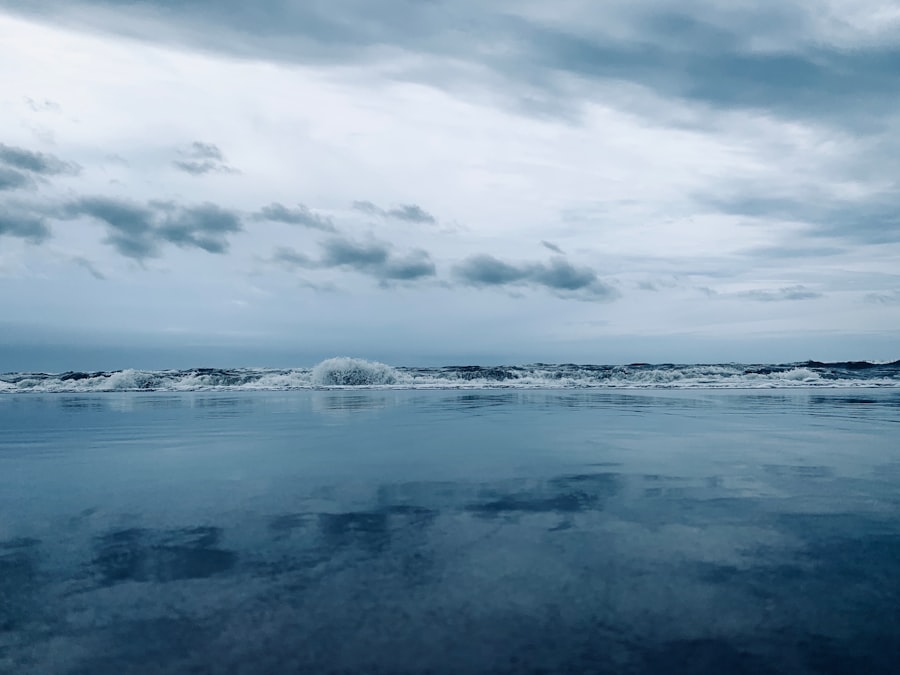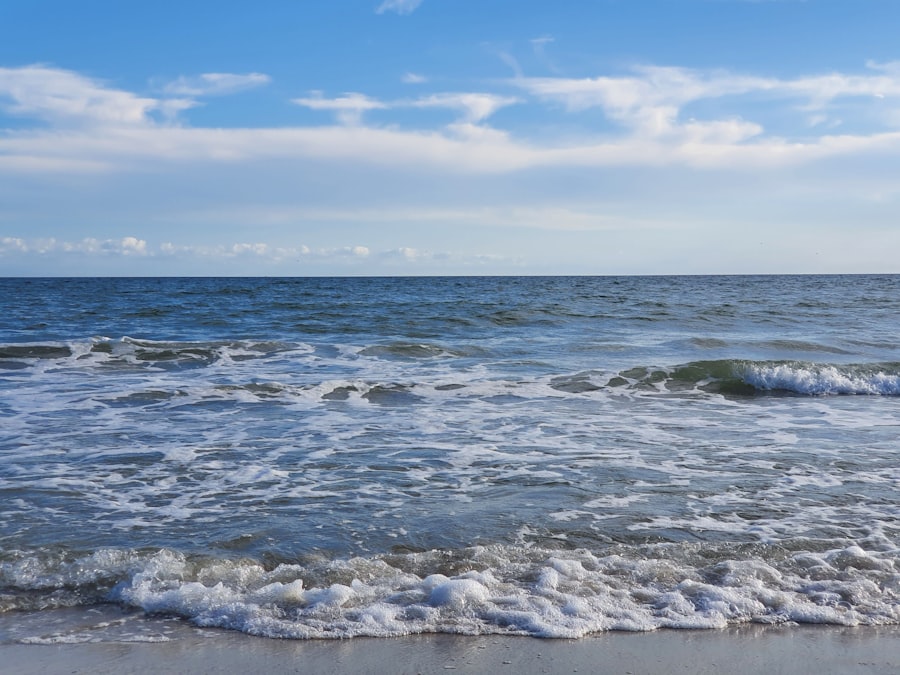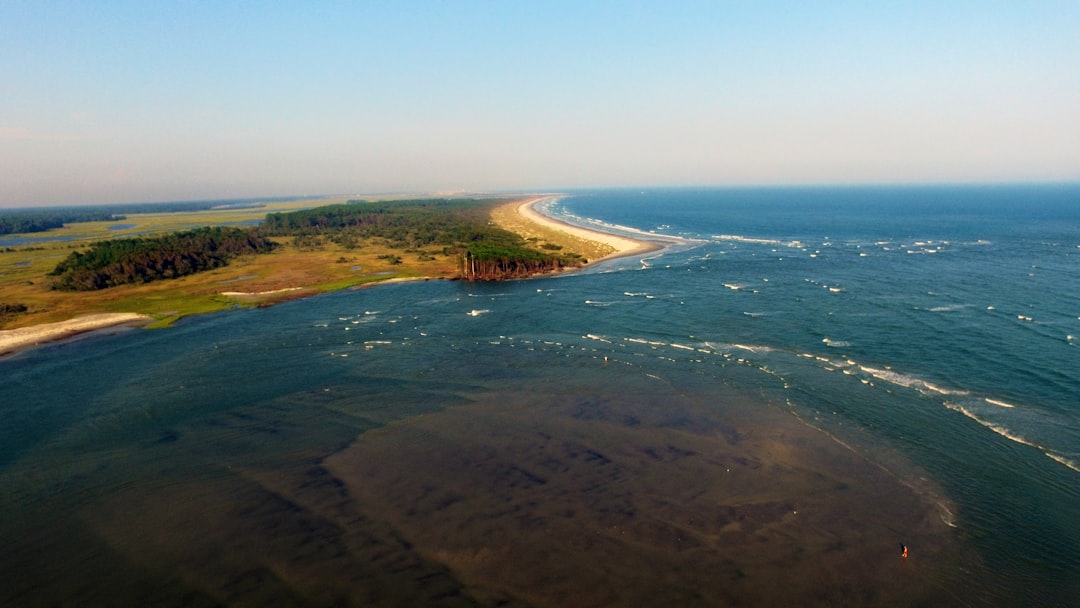The Atlantic Ocean, the second-largest ocean on Earth, stretches between the continents of North America and Europe, encompassing a vast expanse of water that has shaped the history and development of nations. Covering approximately 41 million square miles, it is not only a geographical marvel but also a critical component of global trade, climate regulation, and biodiversity.
Its significance extends beyond mere geography; it has been a witness to human history, serving as a conduit for exploration, trade, and cultural exchange. From the early voyages of European explorers to the transatlantic slave trade and the establishment of colonies, the Atlantic Ocean has been a pivotal arena for human activity. It has facilitated the movement of people, goods, and ideas, shaping the destinies of nations and cultures.
The ocean’s vastness has also provided a natural barrier, influencing military strategies and national security policies throughout history. As the United States emerged as a global power, the Atlantic Ocean became an essential element in its defense strategy, offering both protection and opportunities for expansion.
Key Takeaways
- The Atlantic Ocean is the second largest ocean in the world, covering approximately 20% of the Earth’s surface.
- The Atlantic Ocean has played a crucial role in protecting the US from external threats throughout its history, including during both World Wars.
- The strategic importance of the Atlantic Ocean for national security is evident in its role as a vital maritime highway for trade and military operations.
- The Atlantic Ocean acts as a natural barrier, protecting US coastlines from potential military threats and providing a buffer zone for defense.
- The presence of a strong naval force in the Atlantic Ocean is essential for safeguarding US interests and maintaining security in the region.
Historical significance of the Atlantic Ocean in protecting the US
Historically, the Atlantic Ocean has served as a formidable barrier against potential invasions and foreign threats. During the colonial period, the ocean provided a natural defense for the early American colonies against European powers. The vast distance from Europe meant that any military expedition would require significant resources and time, allowing the colonies to develop their own identity and governance without immediate interference.
This geographical advantage was crucial in fostering a sense of independence that would later culminate in the American Revolution. As the United States grew in size and influence, the Atlantic Ocean continued to play a protective role. The War of 1812 highlighted the importance of naval power in safeguarding American interests against British aggression.
The U.S. Navy’s ability to control key maritime routes allowed for the protection of trade and commerce while deterring potential invasions. The ocean’s expanse not only shielded the nation from direct attacks but also provided a strategic platform for projecting power abroad, reinforcing its significance in shaping U.S.
foreign policy.
Strategic importance of the Atlantic Ocean for national security

The strategic importance of the Atlantic Ocean for U.S. national security cannot be overstated. It serves as a critical line of defense against potential adversaries while facilitating rapid military deployment across Europe and beyond.
The ocean’s vastness allows for the establishment of naval bases and ports that enhance operational readiness and logistical support for military forces. This strategic positioning enables the United States to respond swiftly to emerging threats, whether they arise from state actors or non-state entities. Moreover, the Atlantic Ocean is integral to NATO’s collective defense strategy.
The alliance relies on maritime routes for troop movements and supply chains, making control of these waters essential for maintaining regional stability. The presence of U.S. naval forces in the Atlantic not only deters aggression from adversaries but also reassures allies of America’s commitment to their security.
This interconnectedness underscores the ocean’s role as a linchpin in global security dynamics.
Role of the Atlantic Ocean in protecting US coastlines
| Role of the Atlantic Ocean in protecting US coastlines |
|---|
| 1. Ocean currents help regulate temperature along the coast, influencing weather patterns and protecting against extreme temperatures. |
| 2. The Atlantic Ocean acts as a buffer against storm surges and hurricanes, absorbing some of the energy and reducing their impact on the coastlines. |
| 3. The ocean provides habitat for marine life, including coral reefs and barrier islands, which can act as natural barriers against erosion and coastal flooding. |
| 4. The Atlantic Ocean supports important ecosystems that contribute to the overall health and resilience of coastal areas, such as wetlands and estuaries. |
| 5. The ocean plays a role in shaping coastal landscapes through processes like sediment transport and deposition, helping to maintain and protect shorelines. |
The Atlantic Ocean plays a crucial role in protecting U.S. coastlines from various threats, including natural disasters and military incursions. Its vast waters act as a buffer against hurricanes and storms that can devastate coastal communities.
The ocean’s currents and tides help mitigate some of the impacts of climate change, although they also pose challenges such as rising sea levels and increased storm intensity. Understanding these dynamics is essential for developing effective coastal management strategies that safeguard both human life and infrastructure. In addition to natural threats, the Atlantic Ocean serves as a first line of defense against potential military incursions.
The distance from hostile territories provides a strategic advantage, allowing for early detection and response to any aggressive actions. Coastal surveillance systems and naval patrols work in tandem to monitor maritime activities, ensuring that any potential threats are identified before they can reach U.S. shores.
This proactive approach is vital for maintaining national security and protecting critical infrastructure along the coast.
Atlantic Ocean as a barrier to potential military threats
The Atlantic Ocean functions as a formidable barrier to potential military threats, creating a natural defense that has historically protected the United States from foreign aggression. Its vast expanse complicates any military maneuvering by adversaries, requiring significant resources and planning to launch an attack across such a wide body of water. This geographical reality has shaped U.S.
military strategy, emphasizing naval power as a cornerstone of national defense. Furthermore, the ocean’s role as a barrier extends beyond mere distance; it also influences geopolitical dynamics. Nations seeking to project power into North America must contend with not only the physical challenges posed by the ocean but also the robust naval capabilities of the United States.
This deterrent effect is crucial in maintaining stability in the region, as it discourages hostile actions while reinforcing America’s position as a dominant maritime power.
Importance of naval presence in the Atlantic Ocean for US defense

A strong naval presence in the Atlantic Ocean is essential for U.S. defense strategy, providing both deterrence and operational capabilities that are vital for national security. The U.S. Navy’s ability to project power across this vast body of water ensures that American interests are safeguarded while also contributing to global stability. Naval forces stationed in the Atlantic can respond rapidly to crises, conduct joint exercises with allies, and maintain freedom of navigation in international waters. Moreover, this naval presence serves as a visible reminder of America’s commitment to its allies and partners in Europe and beyond. By maintaining a robust fleet in the Atlantic, the United States reinforces its role as a leader in international security cooperation. This not only enhances collective defense efforts but also fosters trust among allies who rely on American support in times of uncertainty.
Atlantic Ocean’s role in protecting US trade and commerce
The Atlantic Ocean is vital for protecting U.S. trade and commerce, serving as a major conduit for goods flowing between North America and Europe as well as other parts of the world. Major shipping routes traverse its waters, facilitating international trade that is essential for economic growth and stability.
The security of these maritime routes is paramount; any disruption could have far-reaching consequences for both domestic markets and global supply chains. To safeguard these interests, the United States invests heavily in maritime security initiatives that protect shipping lanes from piracy, terrorism, and other threats. The presence of naval forces not only deters potential aggressors but also ensures that trade can flow freely without interruption.
This commitment to securing trade routes underscores the interconnectedness of national security and economic prosperity in an increasingly globalized world.
Environmental challenges and threats facing the Atlantic Ocean
Despite its significance, the Atlantic Ocean faces numerous environmental challenges that threaten its health and sustainability. Climate change poses one of the most pressing issues, leading to rising sea levels, ocean acidification, and altered marine ecosystems. These changes not only impact biodiversity but also have direct consequences for coastal communities reliant on fishing and tourism industries.
Additionally, pollution from land-based sources continues to degrade water quality in many areas of the Atlantic Ocean. Runoff from agriculture, industrial waste, and plastic debris contribute to habitat destruction and threaten marine life. Addressing these environmental challenges requires concerted efforts at local, national, and international levels to implement sustainable practices that protect this vital resource for future generations.
International cooperation in protecting the Atlantic Ocean and US interests
International cooperation is essential for effectively protecting the Atlantic Ocean and safeguarding U.S.
Given its shared nature, collaboration among nations is crucial for addressing environmental challenges, ensuring maritime security, and promoting sustainable practices.
Multilateral agreements such as those established by organizations like NATO or regional partnerships facilitate dialogue and coordination among countries with vested interests in maintaining a healthy ocean ecosystem. Furthermore, joint initiatives focused on research and conservation efforts can lead to innovative solutions that benefit all stakeholders involved. By working together to address common challenges such as climate change or illegal fishing practices, nations can foster goodwill while enhancing their collective ability to protect this vital resource.
Future challenges and opportunities for the Atlantic Ocean in safeguarding the US
Looking ahead, several challenges and opportunities will shape the future role of the Atlantic Ocean in safeguarding U.S. interests. Climate change will continue to pose significant threats that require adaptive strategies to mitigate its impacts on coastal communities and marine ecosystems.
Investing in resilient infrastructure and sustainable practices will be essential for ensuring long-term protection against environmental degradation. At the same time, advancements in technology present opportunities for enhancing maritime security and environmental monitoring efforts. Innovations such as satellite surveillance systems or autonomous vessels can improve situational awareness while reducing costs associated with traditional methods of monitoring vast ocean areas.
Embracing these technological advancements will be crucial for maintaining effective defense strategies while promoting sustainable practices that protect both national interests and global ecosystems.
The enduring importance of the Atlantic Ocean for US security
In conclusion, the Atlantic Ocean remains an enduring pillar of U.S. security, providing both protection from external threats and facilitating economic prosperity through trade routes that connect nations across continents. Its historical significance as a barrier against invasions has shaped military strategies while reinforcing America’s position as a global leader in maritime affairs.
As environmental challenges loom large on the horizon, international cooperation will be essential for safeguarding this vital resource. The future holds both challenges and opportunities for harnessing the potential of the Atlantic Ocean in securing U.S. interests while promoting sustainable practices that benefit all stakeholders involved.
By recognizing its multifaceted importance—ranging from national defense to economic vitality—the United States can continue to navigate an ever-changing geopolitical landscape with confidence rooted in its relationship with this vast body of water.
The Atlantic Ocean plays a crucial role in protecting the United States by acting as a natural barrier against potential threats and facilitating climate regulation. Its vast expanse provides a buffer zone that can slow down or deter maritime invasions and also influences weather patterns that impact the US climate. For a deeper understanding of how geographical features like the Atlantic Ocean contribute to national security and environmental stability, you can explore this related article on MyGeoQuest.
WATCH THIS! The Hidden Reason No One Can Invade America | A Geographical Analysis
FAQs
What is the significance of the Atlantic Ocean in protecting the US?
The Atlantic Ocean acts as a natural barrier, making it more difficult for potential threats to reach the US by sea.
How does the Atlantic Ocean protect the US from military threats?
The vast expanse of the Atlantic Ocean makes it challenging for enemy navies to approach the US coastline undetected, providing a strategic advantage for national defense.
Does the Atlantic Ocean protect the US from natural disasters?
Yes, the Atlantic Ocean can help mitigate the impact of certain natural disasters, such as hurricanes, by absorbing some of the energy and reducing the intensity of storms before they reach the US mainland.
What role does the Atlantic Ocean play in trade and commerce for the US?
The Atlantic Ocean serves as a vital maritime highway for trade, allowing for the transportation of goods and resources to and from the US, contributing to the country’s economic prosperity.
Are there any environmental benefits of the Atlantic Ocean for the US?
The Atlantic Ocean supports diverse marine ecosystems and provides valuable resources such as fish and other marine life, contributing to the ecological and economic well-being of the US.
